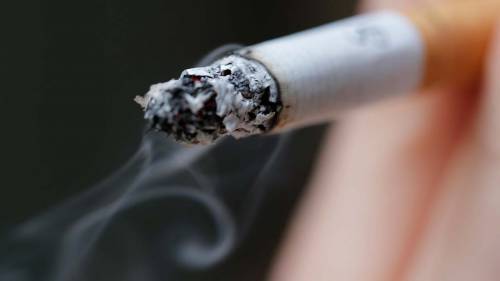
The head of a major public health advocacy group has linked the country’s spiraling cancer rate to a lack of national pride.
Elijah Elijah, National Coordinator, Civil Society for Cancer Eradication in Nigeria, said cancer was “running wild” partly because “we have made ourselves a dumping ground for the world.”
Speaking to The Guardian, during the Society’s recent national conference in Abuja, Elijah blamed importation, in part, for Nigeria’s cancer death-rate being among Africa’s highest.
“One of the greatest risks,” he counseled, “is frozen foods, whose intake should be reduced to the barest minimum. Because the manufacturers use cancer-causing preservatives.”
An imported habit that is fueling cancer, Elijah lamented, is smoking. He cited lung cancer, in particular, which health experts have attributed to the continual inhalation of tobacco fumes.
Said he, “This type of cancer is especially prevalent in the north, where many young males are heavy smokers. Katsina, for example, has a serious problem”.
A third area of concern, the Coordinator noted, is the very large numbers of gender-based cancers hospitals are diagnosing—specifically “breast,” “cervical” and “prostrate”.
He noted that, based on World Health Organization statistics, 30 Nigerian women die of breast cancer each day, with cervical tumors being the next biggest killer.
The third ranking gender-based threat is prostrate cancer, which Elijah described as a “rampaging serial killer that stalks and destroys 14 Nigerian males daily”.
According to him, data from three teaching hospitals (in different regions) showed late treatment—due to a lack of awareness—to be a key factor in Nigeria’s high fatality rate.
“At the Universities of Lagos and Jos and at Ahmadu Bello University, Zaria,” he reported, “we discovered that most cases arrive, when the cancer has reached the third or fourth stage”.
“Public awareness” and “mass mobilization” are operational cornerstones of Elijah’s organization. “I have personally led awareness campaigns in 15 states,” he averred.
Established in 2013, the Civil Society for Cancer Eradication in Nigeria, is a non-governmental organization, reportedly consisting of 968 local member groups (individuals aren’t accepted).
Its structure, as described by the National Coordinator, parallels that of the Federal Government, with regional headquarters in each of the six geopolitical zones and 36 state offices, plus one in Abuja.
He explained that a fundamental tenet of the Society is that Nigeria’s cancer epidemic has a political dimension.
“If Nigerians were more nationalistic,” Elijah asserted, “cancer wouldn’t plague us. The level of importation is alarming. We urge Government to emphasize local food production”.
Credit: guardian.ng